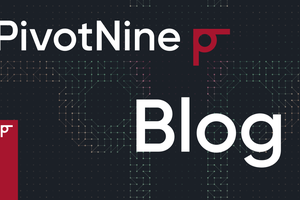Scale Computing Gets Cloudy With Google
Scale Computing, makers of mid-market hyper-converged infrastructure, has partnered with Google to add a version of its HC3 software that can run on Google Cloud Platform (GCP).
Called Cloud Unity, the offering basically means you can run a Scale Computing cluster using Google's infrastructure instead of buying physical hardware yourself, but with a couple of extra features. Cloud Unity can create a SD-WAN connection to your existing Scale environment making the cloud version appear just like another cluster on the same LAN. It uses a VXLAN encrypted tunnel under the covers, so communication between your site and Google's cloud is kept secure.
This setup looks ideal for mid-size organisations looking for a DR version of their primary cluster, but who don't want to shell out for hardware that mostly sits idle in another data-centre. Cloud Unity uses a small instance type running in GCP to handle the replication targets and other overhead, and only spins up a full sized instance for workloads if you fail over for DR. This keeps the cost down, and aligns nicely with the elastic, demand related nature of cloud.
Scale also has another plan for this capability: legacy apps. Scale announced some impressive performance for NVMe based hardware during VMworld which is at least partially due to the architectural design of HC3's IO subsystem SCRIBE. As Scale CTO Phil White explained to me “many legacy apps are single-threaded, so adding more CPUs won't help.” Instead, removing latency from the single-thread boosts performance, with the added bonus of not having to optimise the application specifically for NVMe storage.
This same low-latency data path can help legacy apps running in a nested virtualization setup like Scale on GCP. Organisations can get many of the benefits of cloud—elasticity of storage (less so the compute because of the single threading), the ability to move it around, consumption pricing—without having to rewrite all their applications. That buys them some time to figure out what to rewrite, and what to simply replace.
Scale's target market is even less able to rewrite existing applications to be cloud native than well-funded enterprises. Small organisations can (and are) generally able to completely move to cloud-based SaaS for most workloads. Mid-market organisations often have a few applications that are critical to their business, but which will be challenging to rewrite.
Scale helps kick that can a little further down the road, which isn't great aesthetically, but it can make good business sense. Provided these organisations have a plan for what to do about these apps in the mid- to longer-term, simply moving them to a VM on Scale that can run in the cloud as well as on-site buys them time to figure it out, while getting at least some of the advantages cloud can bring.
Having a functional backup and DR system is, I would argue, more important than getting off an old, yet functional, application. Using a cloud option for DR saves capital and time which can be invested in addressing these heritage IT systems, because you don't have to pay for the entire hardware stack of a full standby system.
It's like insurance. You pay a small amount (like an insurance premium) to have the ability to call on a DR capability should you need it, rather than self-insuring by keeping a big infrastructure/capital reserve sitting around idle just in case. You just need to have confidence that Google maintains prudent reserves, so you can spin up the DR infrastructure you need when you need it, just like you need to trust your insurer has the reserves to pay out your claim should you need to make one.
It's not for everyone, but Scale Computing has never tried to be all things to all people. This is a solid offer that suits its market, while demonstrating some pretty cool technology under the hood. This is technology with a purpose rather than just cool tech for the sake of it. I can see this option adding real value to Scale customers, and expect it to make a valuable contribution to Scale's revenues.
Cloud Unity will be available from Q4 2017.
Disclosure: Scale Computing once gave PivotNine a refurbished 3-node HC1000 cluster that we use in our lab. We purchased the switch interconnect gear ourselves.
This article first appeared in Forbes.com here.
